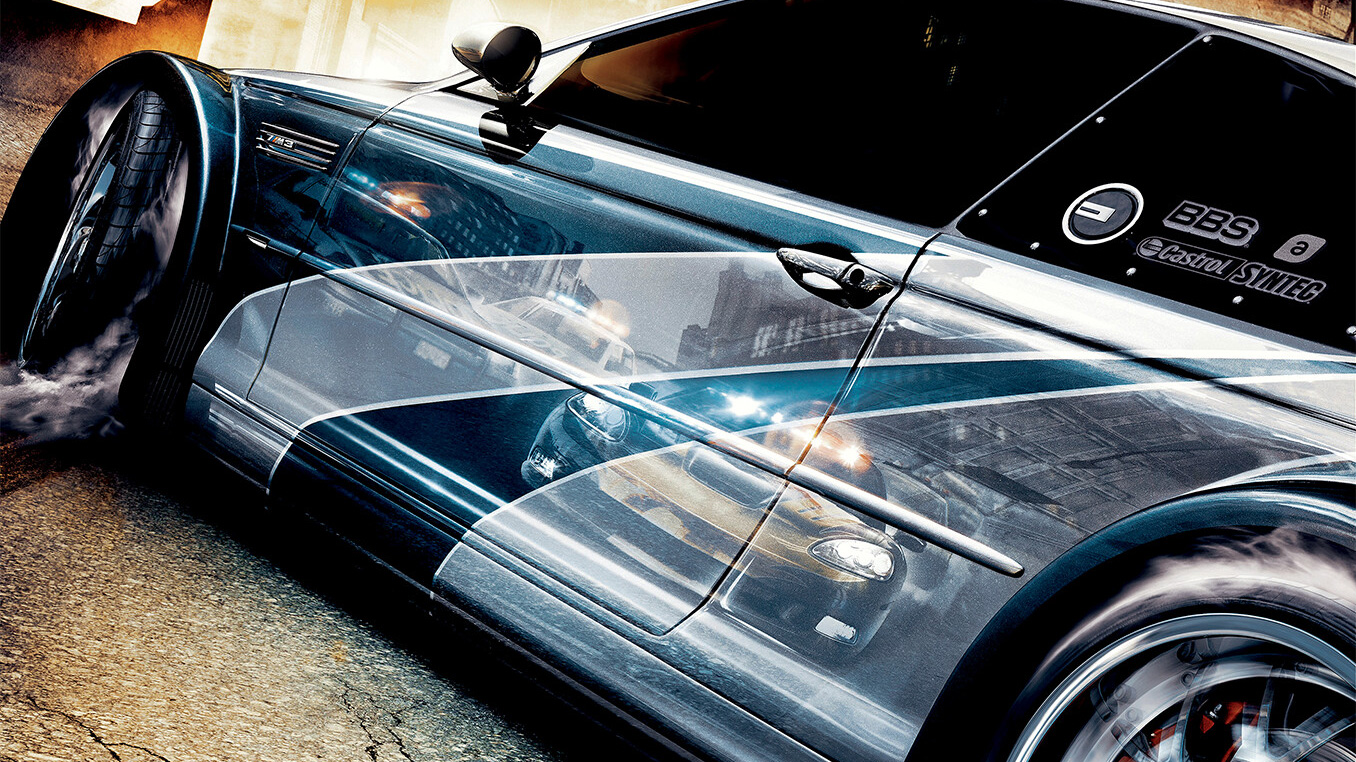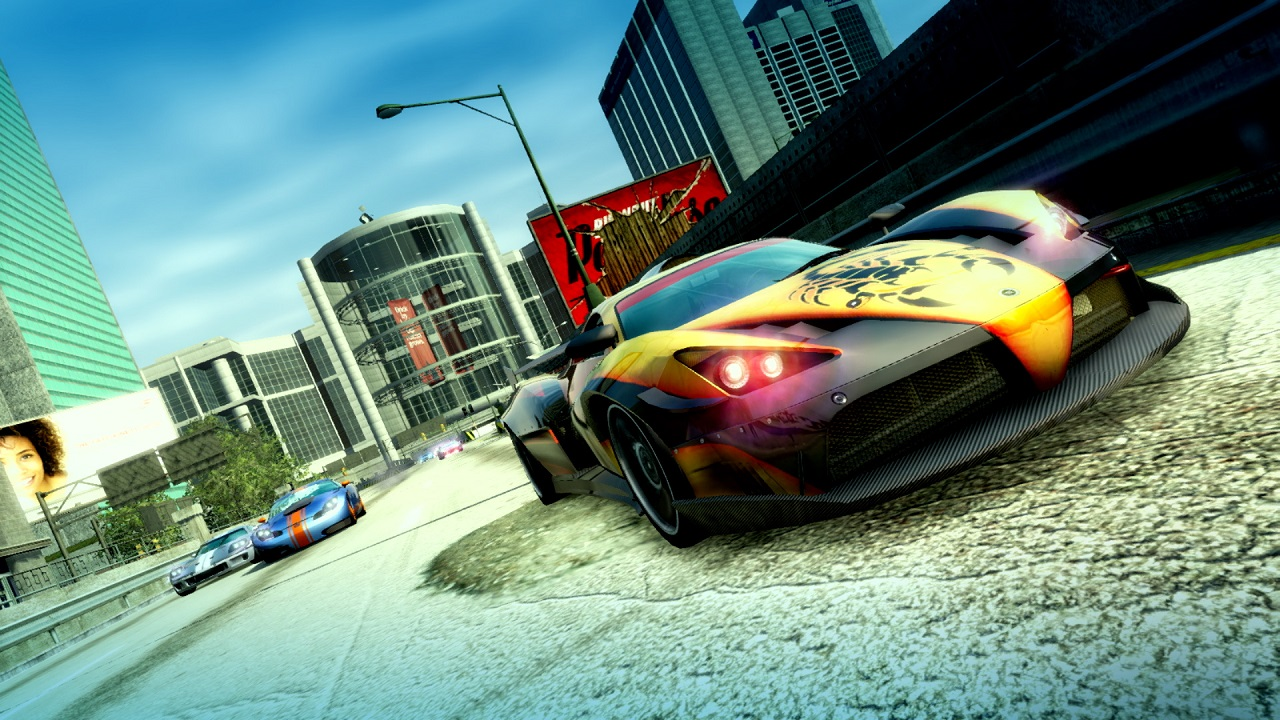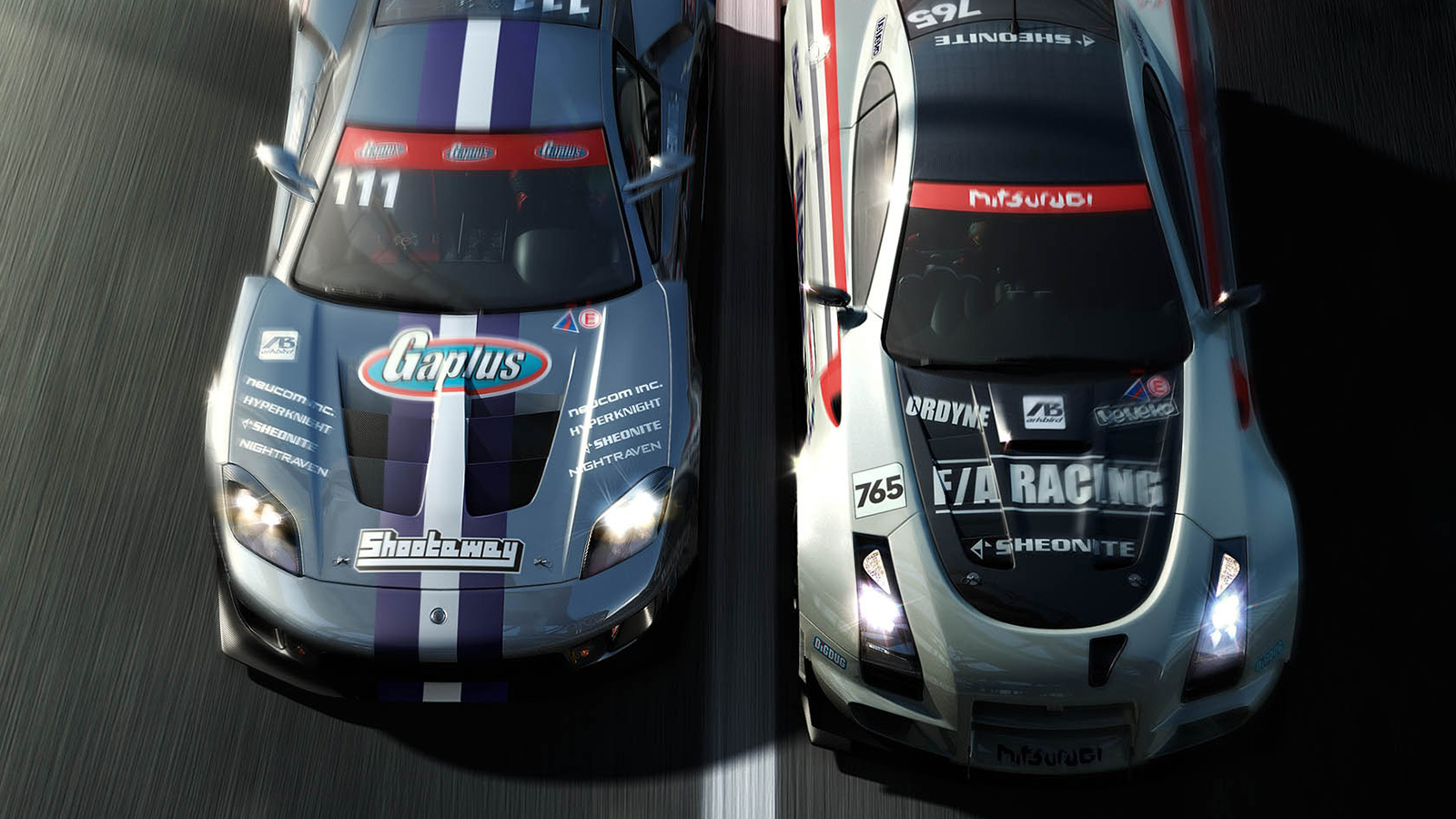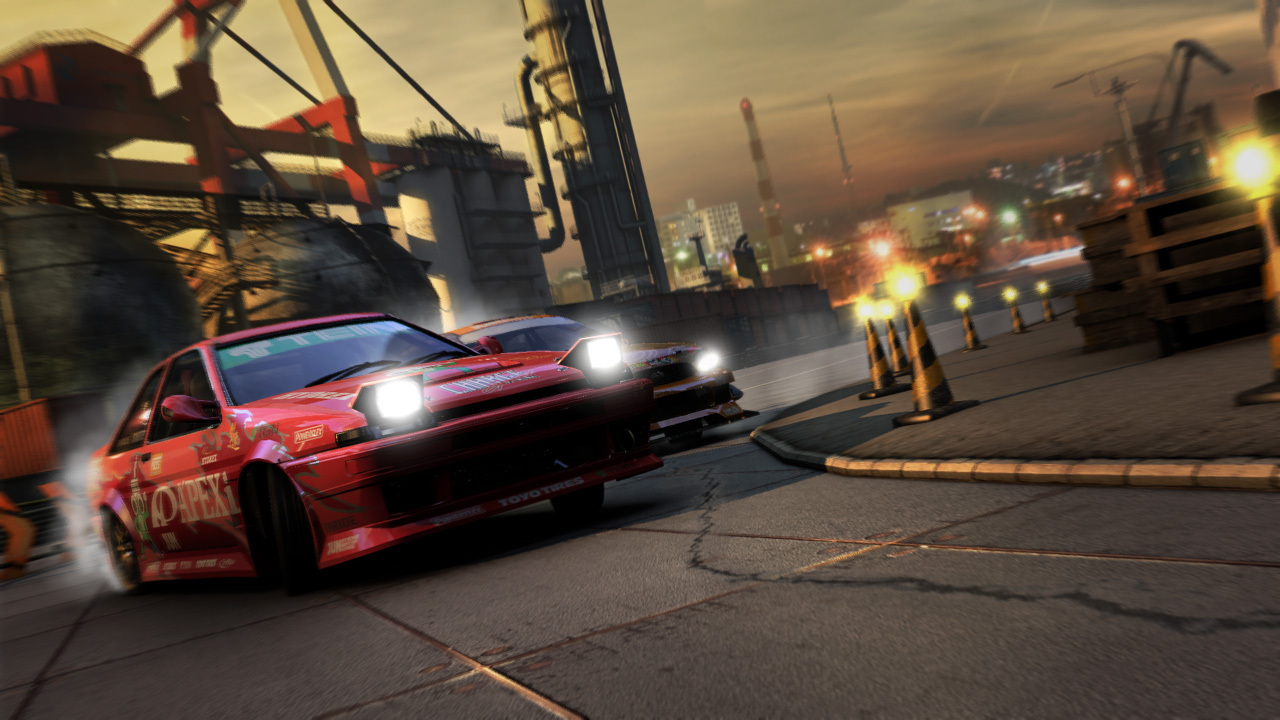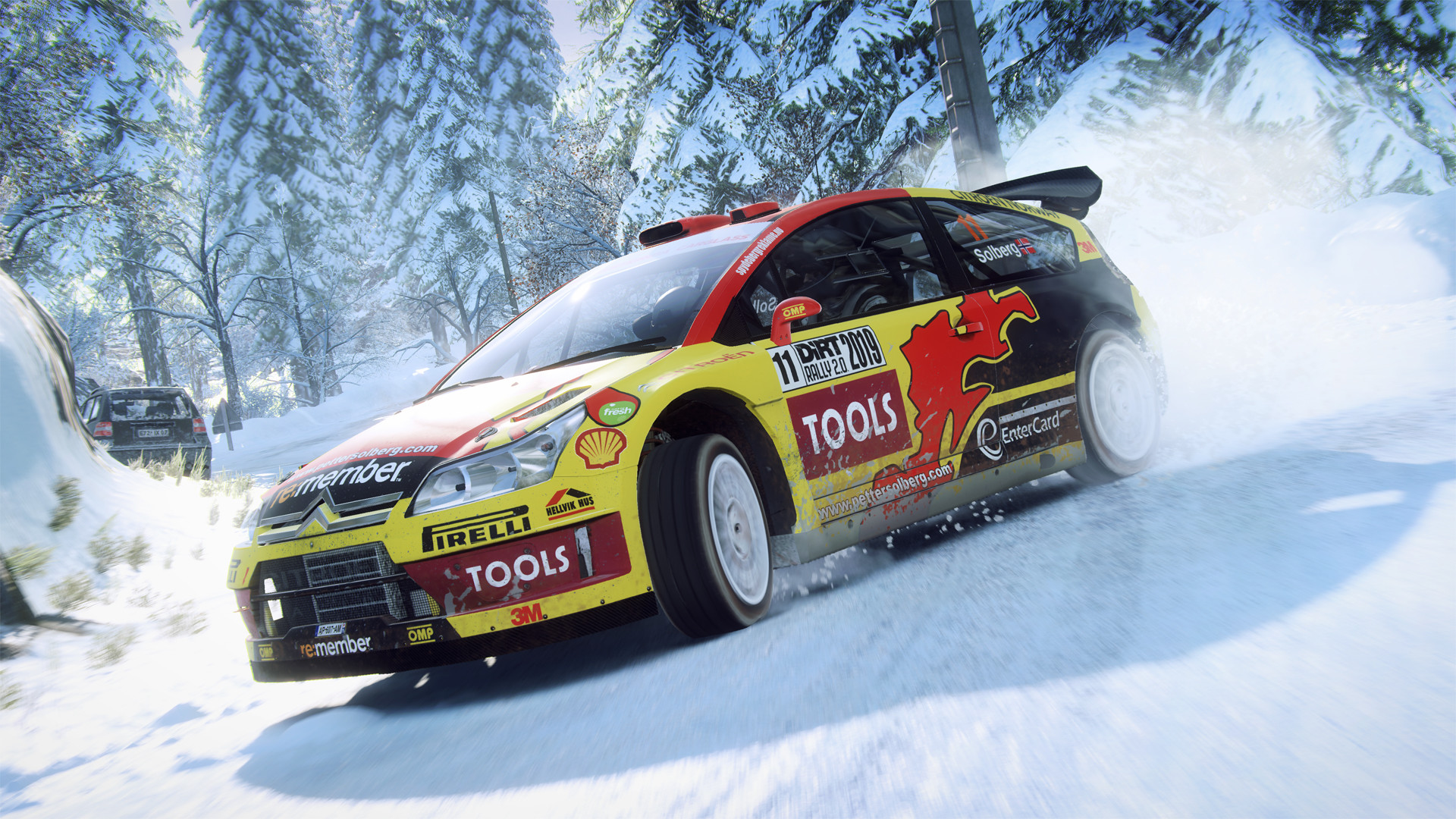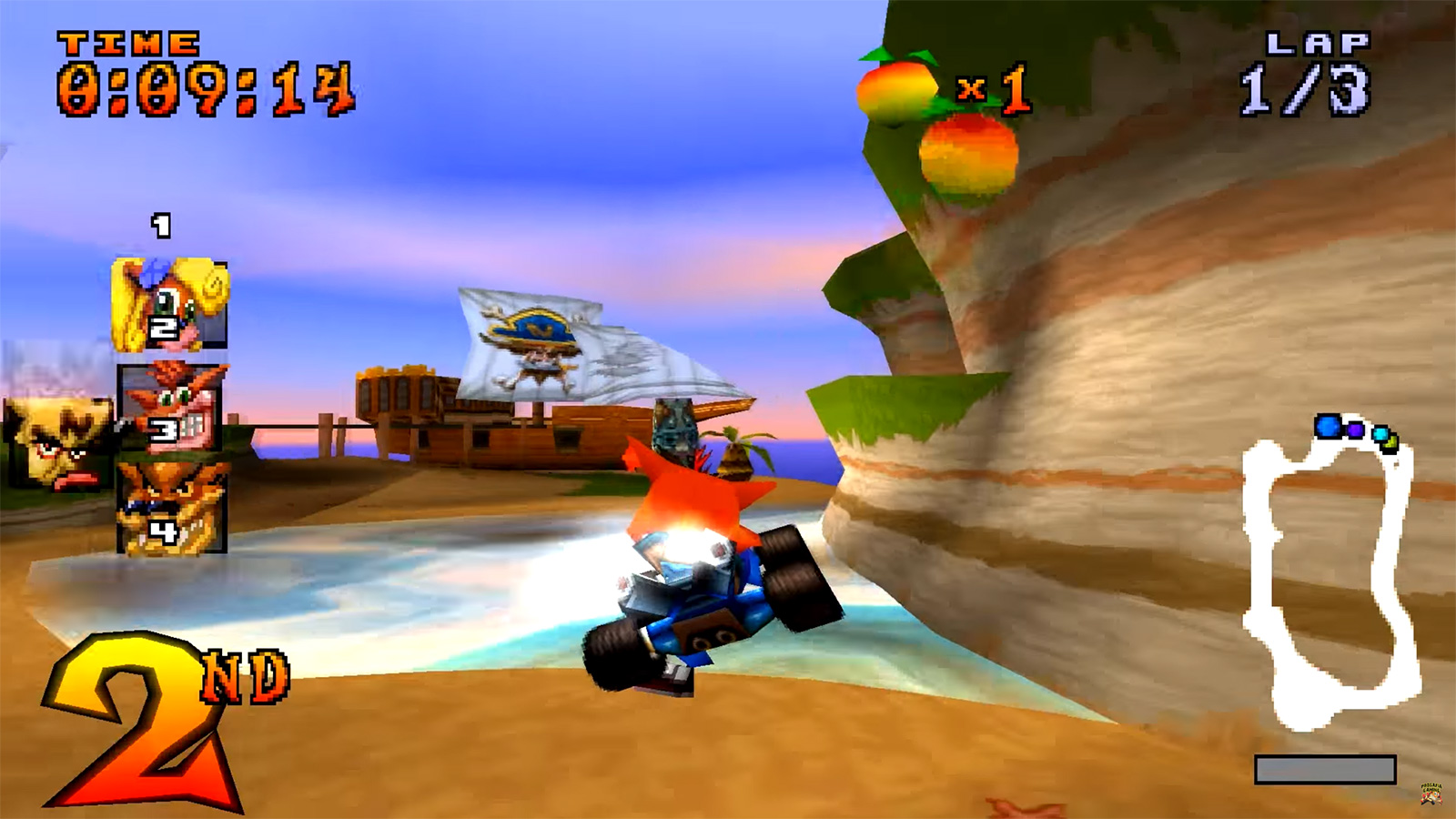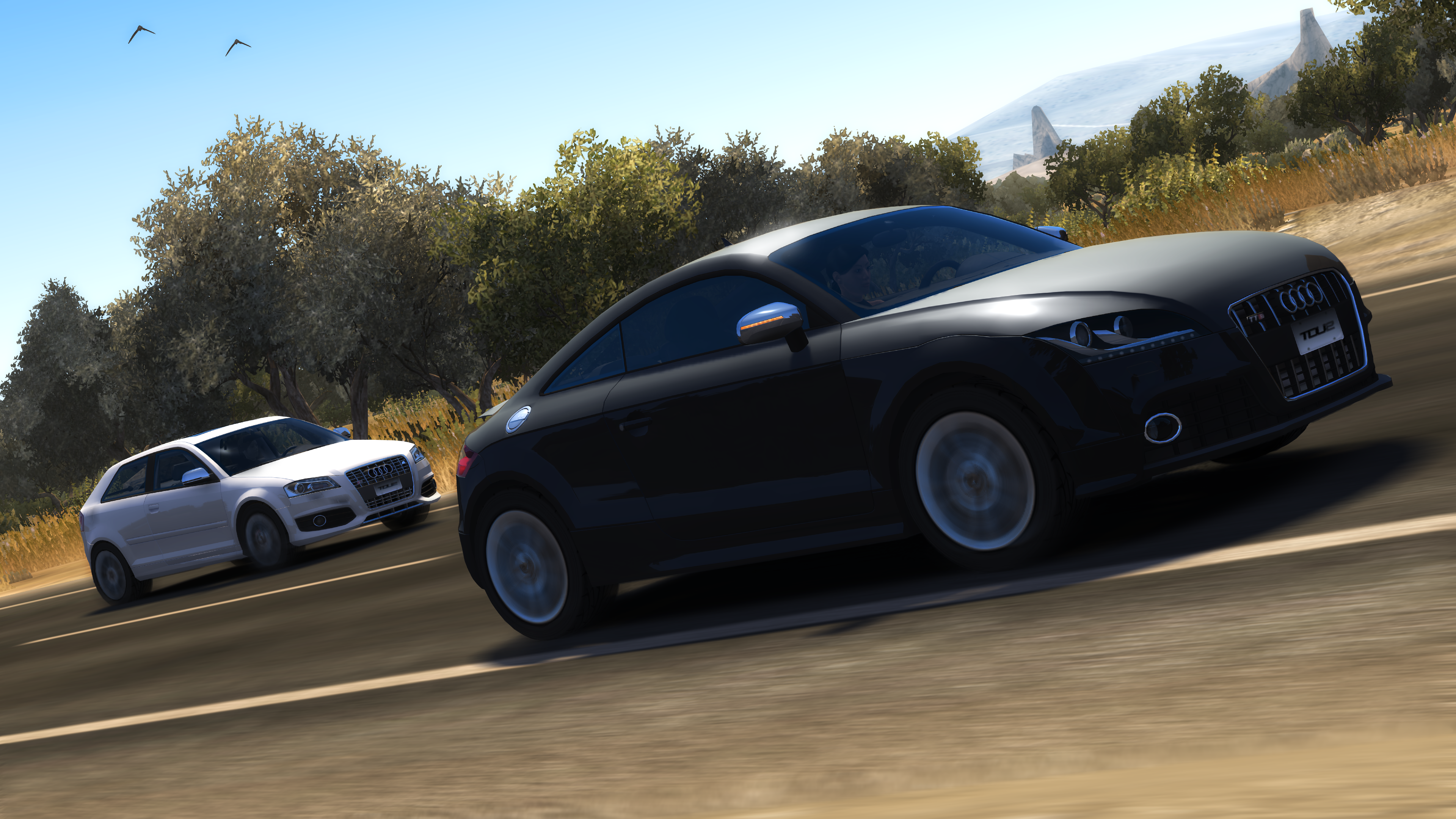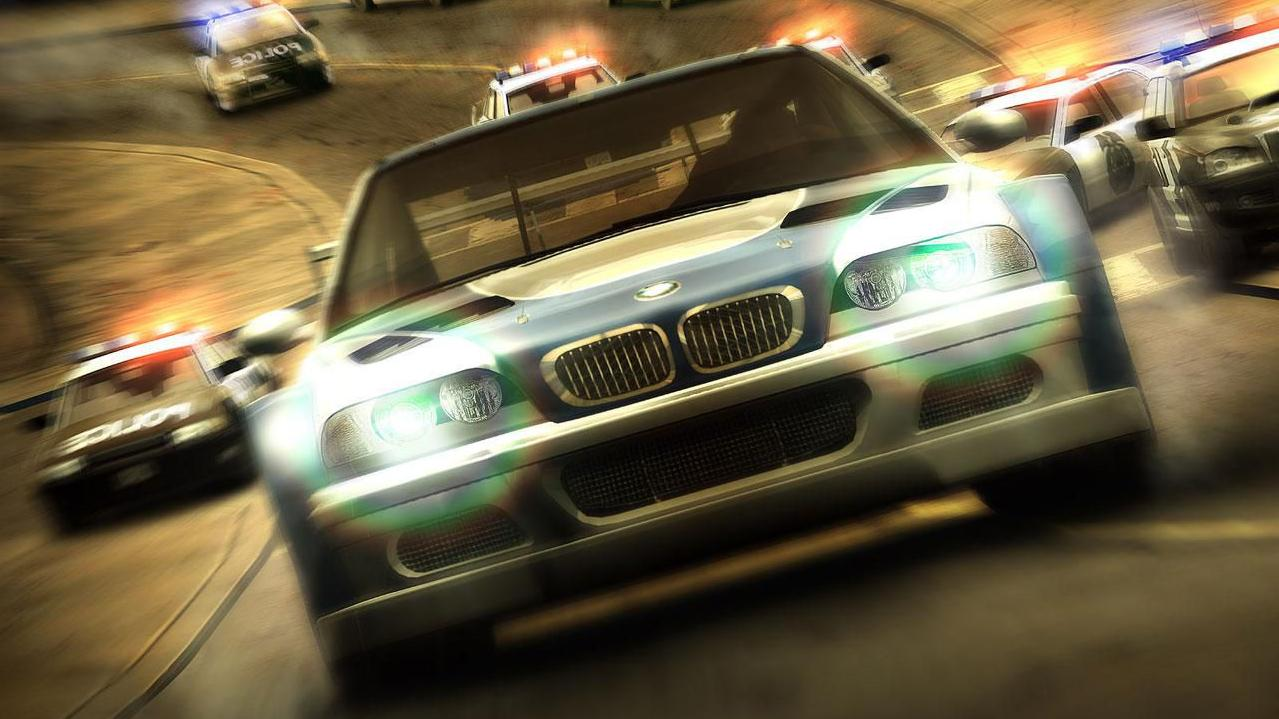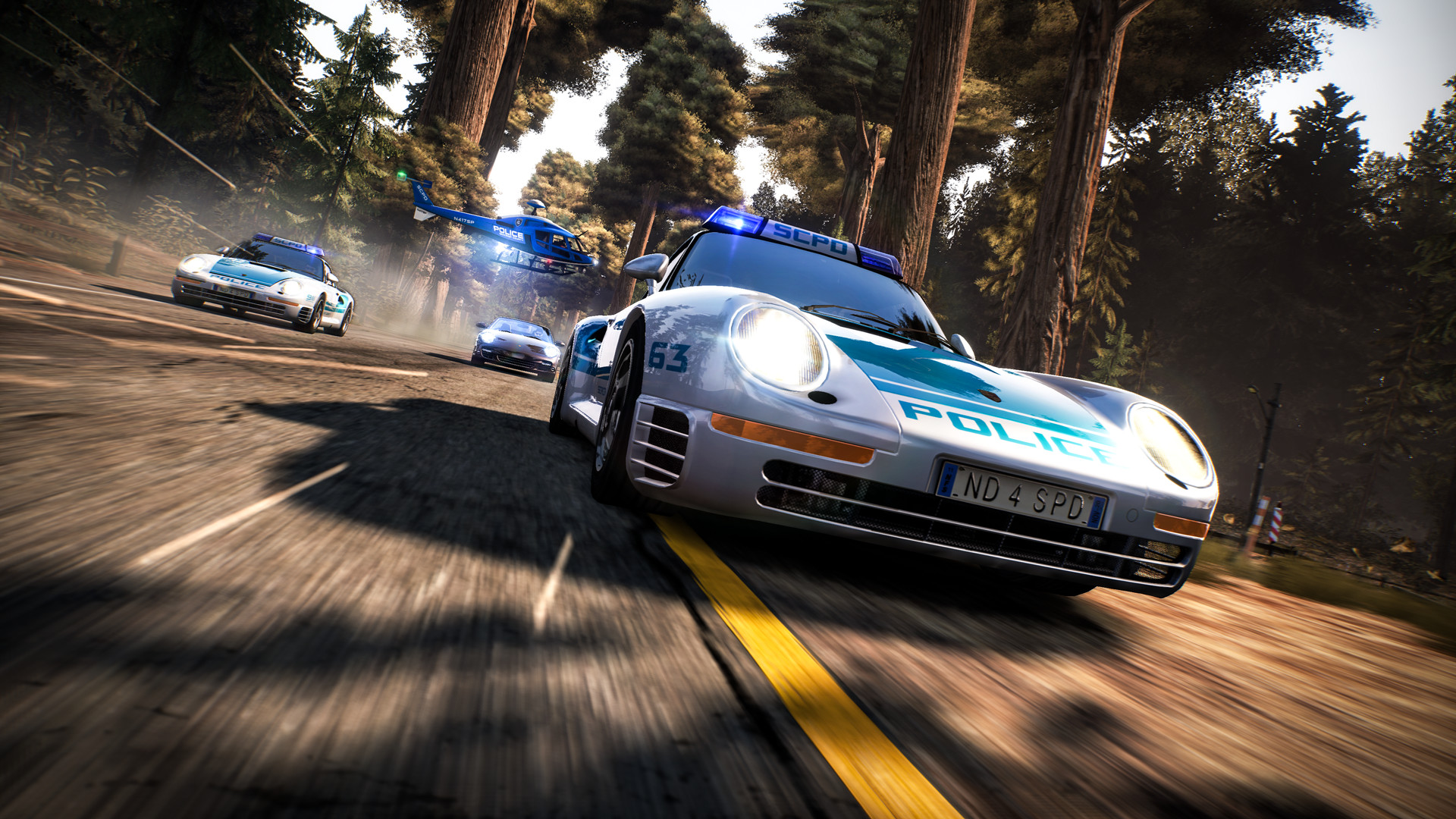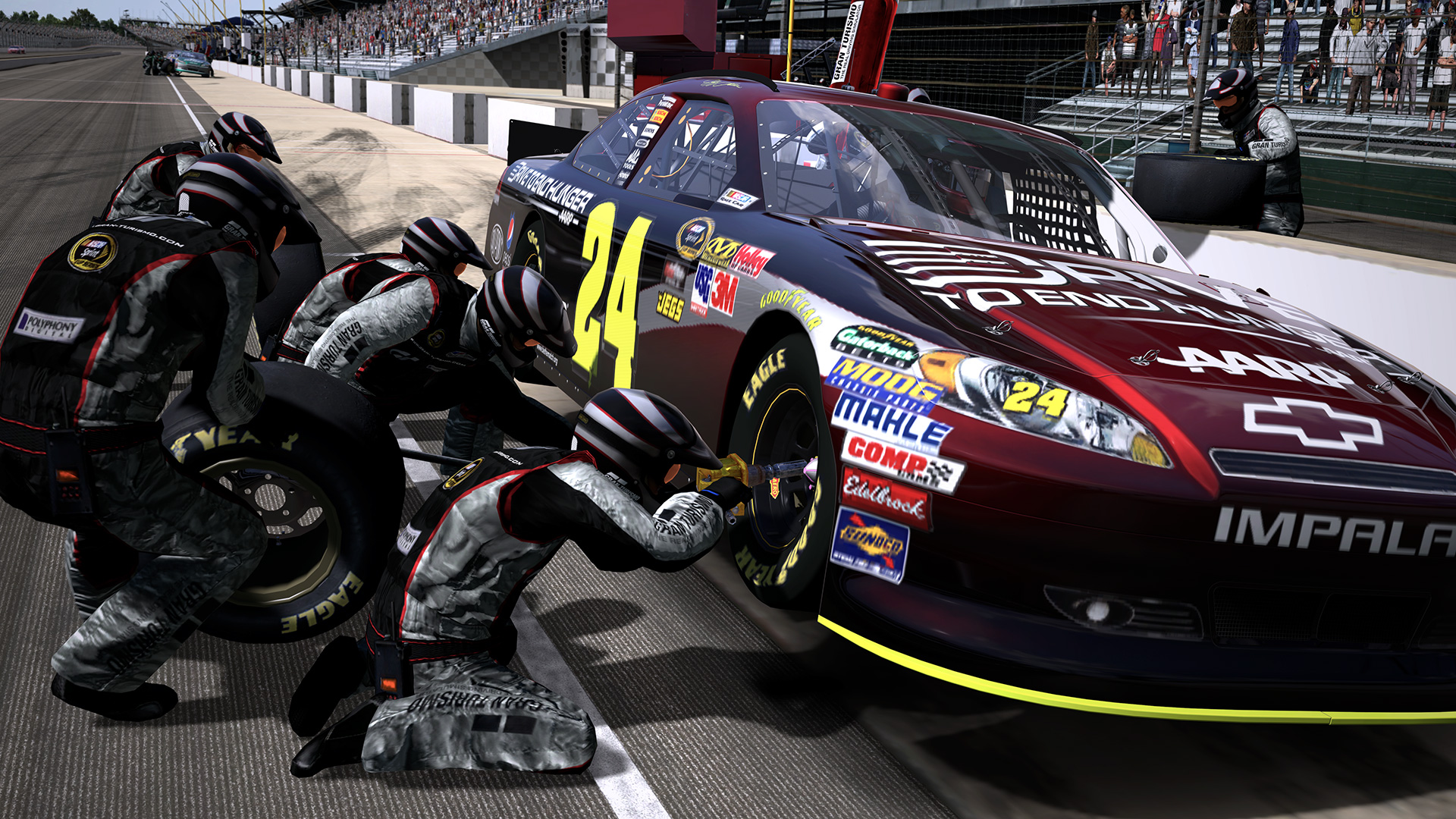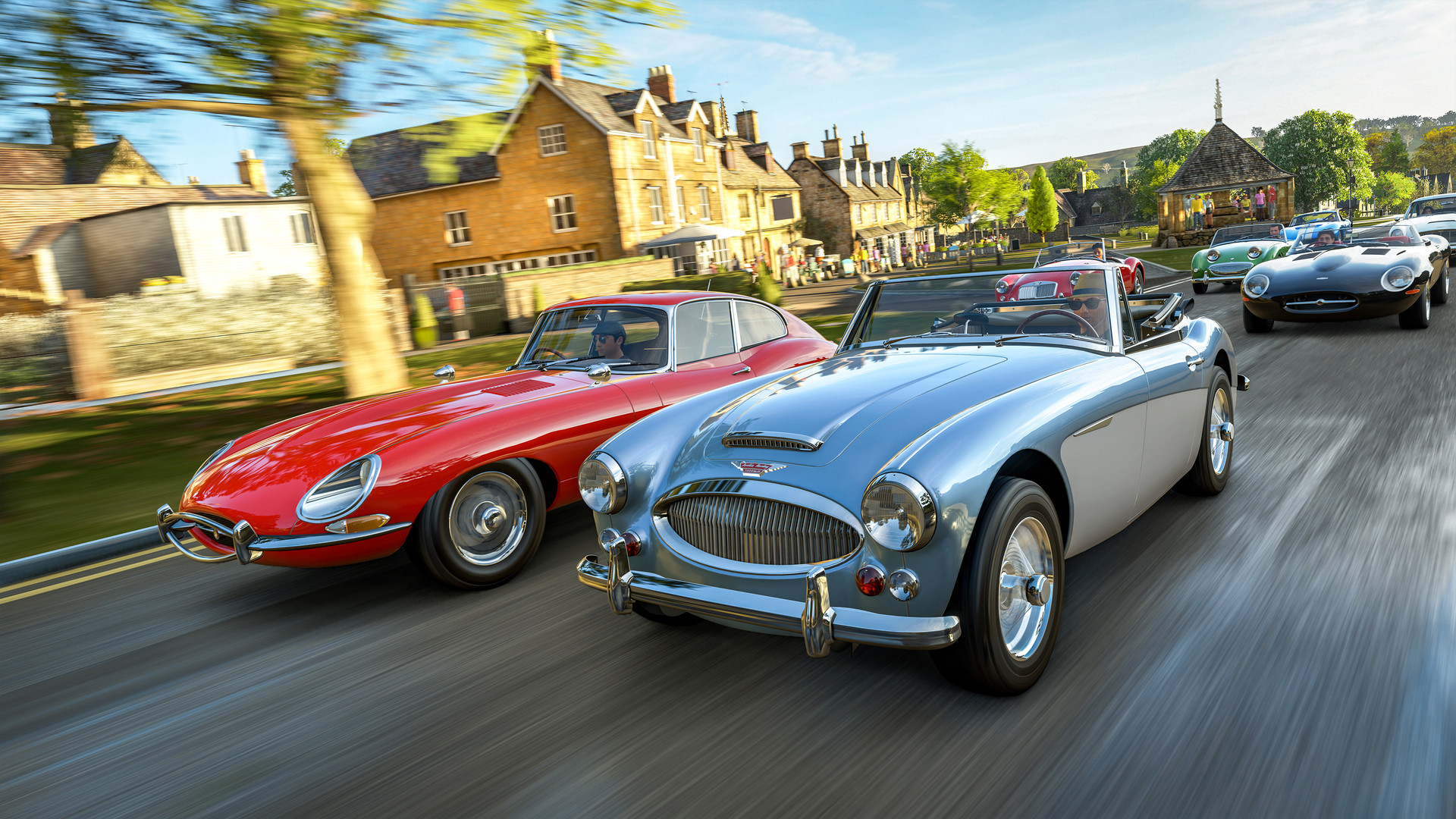These Are The 10 Most Overrated Racing Games Ever
These racers are good, but history has a habit of being overly kind.
Racing games. There used to be so many more of them, of all kinds, and the gaming medium was better for it. And, as with any art form, there are a few that have been propped up as unassailable with the passage of time. Today, we're taking aim at those games — games, I want to point out, that are still good, though maybe not quite deserving of their end-of-conversation status. Don't worry: we fully intend to balance out the negativity with a list of underrated racers in the future, too.
With that said, I've now donned my flame suit and am as ready as I'll ever be to kick this off. You in?
10. Burnout Paradise (2008)
Listen: I love Burnout Paradise. Over the years I've owned it on four different platforms, and most recently picked it up again a few months ago on the Switch during a sale purely because the idea of having it on the go sounded incredibly enticing. But there's more to Criterion's action racing series than Paradise, and it's time one of those games got a victory-lap remaster, too.
Take Burnout 2, for example. Without the element of takedowns, that title rewards precision driving finesse like no later game in the franchise. Or Burnout 3, with its inventive track design and, of course, the finest interpretation of Crash Mode — a popular feature missing from the final entry in the series. Sure, Paradise's open-world nature places it more in line with modern arcade racing games, and makes it an easier sell. But that doesn't make it better than its track-based brethren — just different.
9. Ridge Racer 7 (2006)
There's a small but intensely faithful cluster of Ridge Racer fans on the internet that will take issue with the last mainline entry, 2007's Ridge Racer 7, winding up on this list. As is the case with most of the games I'm discussing here, I do enjoy Ridge Racer 7 — it's not a bad game by any means, and should be renowned from a technical standpoint for being one of the few titles on the PlayStation 3 to achieve 60 frames per second at 1080p resolution — pretty much unheard of when the PS-triple launched 16 (!) years ago.
The problem with Ridge Racer 7 is that it's still ultimately the best take on the worst era of a franchise that used to be better. After Ridge Racers on the PSP — another phenomenal Sony-hardware launch title from Namco — the developers more or less stopped innovating with this series, essentially rereleasing much of the same content, with the same physics and general driving experience, across a range of platforms. RR7 is basically a content patch on Ridge Racer 6, released a year earlier in tandem with the Xbox 360 launch.
The way this period of Ridge Racer handles always felt distinctly lifeless to me — like the cars basically drive themselves, requiring far less driver involvement or attention compared to, say, Ridge Racer V, R4 or previous entries. And the beginning of the game is an absolute slog with races that are so slow and easy they're sleep-inducing, and tons of locked upgrades, customization options and vehicles that take far too long to access. I want Ridge Racer to return as badly as anyone else. But if it ever does, I hope Namco doesn't look at anything past 2004 for inspiration.
8. Race Driver: Grid (2008)
In some respects, the original Race Driver: Grid — not to be confused with the 2019 reboot — was revolutionary for the genre. While Grid was not a simulation in the typical sense, Codemasters did an excellent job conveying the visceral nature of motorsport — the edge-of-control chaos, the cacophony of sounds and, of course, the crashes — better than most actual sims do, even today. That deserves respect.
Unfortunately, the dumbing down of the handling from previous Race Driver games and aggressive seventh-gen brown-and-bloom filter resulted in Grid feeling more violent but not necessarily more enjoyable to drive. The 24 Hours of Le Mans inclusion should have been a huge win for sports car racing fans, but the artificially widened Circuit de la Sarthe and total lack of pit stops made it feel a bit hollow, visually pretty though it was.
7. Dirt Rally 2.0 (2019)
Dirt Rally 2.0 frustrates me like no other game on this list. Its simulation of rallying as a discipline is unparalleled; its physics are, frankly, perfect. The way ditches and grooves in stage topography pull you in and bounce you out is something no competing rally sim has recreated. If you are looking for the best possible platform for selecting a car and a stage and running that route to your heart's content, nobody does it better.
But Codies' Colin McRae Rally series didn't make a name for itself on simulation alone; it also had the deepest career of any rally game, with a variety of single-player experiences catering to players of all skill levels. Later entries, like Dirt 4, even allowed you to create your own teams and liveries, sign sponsors and manage personnel; this is something Kylotonn's official WRC games have also been very good at.
The original Dirt Rally was a shot in the dark by Codemasters to see if the public would take to a punishingly realistic rally sim — it did. After that, the studio could have sought to make it a richer experience in the service park, in the vein of its own Formula 1 games. That didn't happen, but with Codies receiving the official WRC license starting next year, perhaps better things lie ahead.
6. Crash Team Racing (1999)
I sort of understand why Crash Team Racing has the following it does. If you didn't have a Nintendo 64 and couldn't play Mario Kart 64 or Diddy Kong Racing — which really did all the karting adventure story mode stuff before CTR anyway — this game would have seemed incredibly novel at the time. And Crash wormed his way into many hearts as a lovable shitheel, thanks in part to Sony's advertising budget.
But CTR also had more of a skill slant compared to other kart racers, in the form of its drifting/boost mechanic. Tap a button at precisely the moment a meter on screen changes color while you're drifting, and you can take advantage of a mid-slide burst of speed.
Hot take: I've never enjoyed this mechanic. Tell me to "git gud" — many have before — but I don't derive joy from watching a meter fill while drifting while trying to avoid attacks from racers behind me while evading a litany of annoying environmental obstacles. Does it make the game harder? Sure, even though the AI rubberbanding makes it plenty challenging already. Does it make it more fun? I'll stick to Sonic & All-Stars Racing Transformed or Mario Kart 8 Deluxe for that.
5. Test Drive Unlimited 2 (2011)
The original Test Drive Unlimited, developed by Eden Studios, was a revelation when it came out in 2006. Though certainly imperfect and not the most polished racing game ever, having access to a map that big — a 1:1 scale recreation of the island of Oahu — made for a unique experience that has gone unmatched in the genre. Normally I'm not a quantity-over-quality guy, but when the open world in question is that large and vibrant, it compels you to explore, and explore I certainly did in TDU.
Test Drive Unlimited 2 added Ibiza as a playable locale; it also added a cringey story mode exclusively populated by aggressively punchable millionaires, as well as loads of bugs particularly for the PC port, some of which Eden never addressed. TDU1 dumped you on a massive island as a voiceless protagonist amid other blissfully voiceless competitors and encouraged you to make your own fun. TDU2 sold the "dream" of being an insufferable socialite with a yacht, with some mediocre arcade racing peppered in between. Safe to say I'm not eagerly anticipating the upcoming sequel.
4. Need For Speed: Most Wanted (2005)
It's a popular opinion that Need For Speed: Most Wanted is the most overrated racing game of all time. I have always loved it — loved it the first time I played it, still love it today. It's a great game, mixing the open-world ambition of NFS Underground with the police chases that made NFS: Hot Pursuit 2 stand out, while including a diverse roster of cars that united both camps of fans. It is still, in my opinion, the finest open-world NFS ever made.
But of course, perfect it isn't. The campaign takes a while to get going, the customization is pretty barebones compared to, say, Midnight Club 3, and most of the admittedly small map is locked away from the player for almost half the game. And the M3 GTR — yes, that M3 GTR — is silly. It's a homologation special wearing an oversized tribal tattoo. The game ends with you getting that hero car back, so there are no races left to win by the time you do. I happily revisit Most Wanted '05 from time to time, but its legend has definitely grown unjustifiably immense in the last two decades.
3. Need For Speed: Hot Pursuit (2010)
While I wouldn't mind a remaster or remake of Most Wanted '05, 2010's Hot Pursuit was the Need For Speed that actually got a renewed lease on life a few years back, with Hot Pursuit Remastered. It wouldn't have been my choice, personally.
Criterion's first stab at NFS looked phenomenal for its day, like a playable Top Gear segment. But it falls apart completely in the handling department, with sluggish steering that feels chronically imbued with input lag. The responsiveness you need to slice through police roadblocks and drift through traffic simply isn't there, even if the map itself is comprised exclusively of comically wide roads. In that respect it sort of reminds me of the very first Need For Speed, which emphasized long highway driving, thankfully without the frustrating physics.
2. Gran Turismo 5 (2010)
Gran Turismo 5 is, for my money, the most disappointing racing game of all time. Now, to be fair, there is absolutely no way it could have met the hype of a five-year development cycle, coming off of arguably the best racing game ever made. But developer Polyphony Digital certainly didn't help the effort with its puzzling design decisions.
Where do we begin? There's the 800 PlayStation 2-era "standard" car models carried over from GT4, sharing the track with new models featuring 100 times the detail. The strange leveling system, where cars were locked away to players even if they had the money to buy them. Completely undercooked modes like Gran Turismo Rally with procedurally generated tracks that clearly weren't fit for launch. A front-end menu that took minutes, at its worst, to load before you could actually play the game. Official NASCAR and WRC licenses used to almost no effect. I could go on, but you get it: GT5 was a remarkably inconsistent experience that didn't meet Polyphony's otherwise high bar for quality, yet is still occasionally celebrated for its scope.
1. Forza Horizon 4 (2018)
Forza Horizon typically receives mention in discussions of overrated racing games, and it's not hard to see why. The series is massively successful, and easily the most popular mainstream racing game of the past 10 years. A new one releases every two or three years like clockwork, a testament to Playground Games' work ethic. While the locale changes with each installment, many other factors — the car list and assets, the physics, the anything-goes structure of the campaign and even more granular things like car customization and livery editing — rarely do. And yet, the Metacritic scores are always, always through the roof.
I didn't want to just lambaste an entire series here, though, because Forza Horizon does not deserve that; there is a reason these games are so popular, and why we all still come crawling back every time a new one comes out, regardless of our misgivings with the franchise's past. Forza Horizon 5 did indeed make meaningful changes to the game's physics engine, so I'll spare it the mention here and save my pointed finger for 2018's Forza Horizon 4.
Personally, this was the one where I felt the fatigue really set in. Replicating the changing of the seasons was a neat gimmick, but the United Kingdom wasn't the most exciting choice for a setting. The usual complaints of too-familiar content and longstanding feature deficits applied, but the frivolous nature of event payouts and Wheelspin frequency truly ballooned to laughable proportions in FH4, making the entire career feel meaningless and curbing any pride in progression. This series is in need of a rethink, but as it's such a cash cow it's hard to imagine Playground flipping the script with the inevitable Forza Horizon 6.
There you are — 10 overrated racing games. What do you think of this list? Which titles shouldn't have made the cut? Which deserved to instead? Let us know in the comments.
